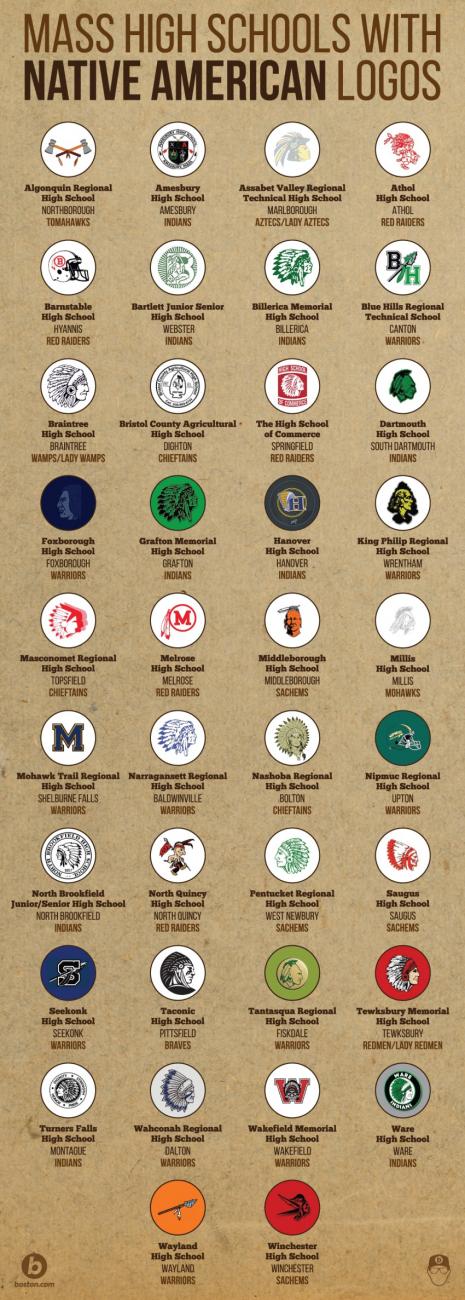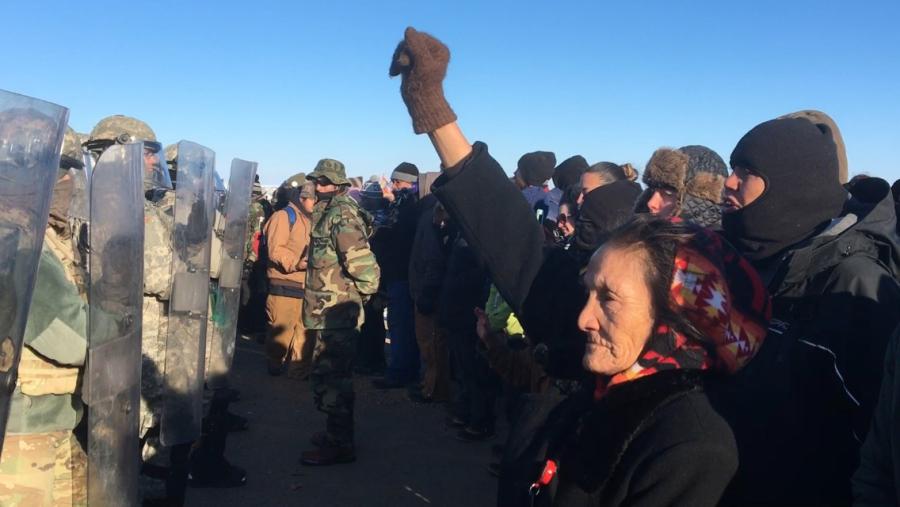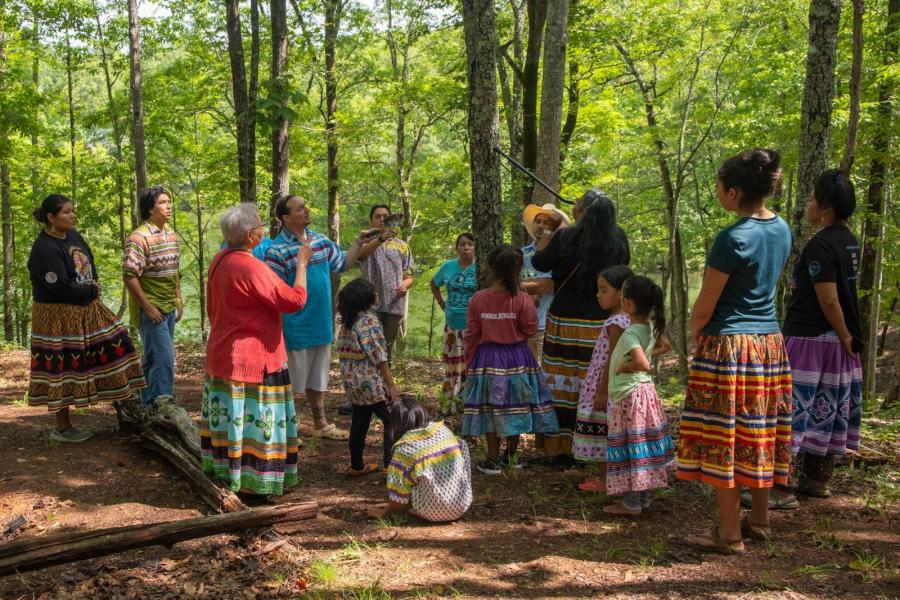
By Haley Albano
On June 25, 2019, Native American leaders and civil rights advocates convened at the Massachusetts State House in support of the elimination of Native mascots in public schools across the Commonwealth (Bills H.443 S.247). The bill would mandate that the approximately 40 Massachusetts public schools change existing mascots that use imagery and names that depict Native Americans. The bill does allow for Native sports teams to retain Native imagery for social and cultural cohesion. Native stakeholder groups voiced their support for this bill and emphasized their lack of consent for the continued use of imagery destructive to the futures of Indigenous children as well as to the futures of non-Native children exposed to inauthentic and racist representations of Native identities.
Advocacy groups in attendance included representatives from the Massachusetts Center for Native American Awareness, the North American Indian Center of Boston, United American Indians of New England, Cultural Survival, and many local Native leaders, as well non-Native scholars, parents, students, and those concerned with the effects of racism. Claudia Fox Tree, a teacher and member of the Arawak Nation, dissented against the use of the singular, “one-dimensional” stereotypical image, and added that “It is not only its presence. It is its absence and the absence of anything and everything else here on our lands that are accurate, respectful and known by the other 98 percent not Indigenous.” Advocacy cited research on the psychosocial effects of these destructive appropriations of Native imagery in all public spheres.
Many supporters spoke to the institutional racism that occurs when an entire group of people is mocked, taught to be disrespected, and otherwise critically diminished in a public space. This has often violent consequences towards the group being depicted. The many civil rights movements of the past have set the foundations to inform the general public that it is not morally justifiable to depict races and cultures in any form of ‘blackface’, yet Native caricature and costumery continue to be commonplace in Massachusetts and elsewhere. . The consequences of the body politic refusing to recognize this history is dangerous. Refusing to allow self-determination of representation is a reminder of genocide and political domination. When local communities have violently attached themselves to these contested images, claiming ownership over the sovereign decisions of an entire group of people, ethical conversations are no longer possible.
Shauna Manning, of the Massachusetts Teachers Association, has been fighting to eliminate mascots such as North Quincy’s ‘Yakoo’. She said that people in these communities fighting for change are fearing for their lives, are the recipients of threats, and are having to fill out police reports to protect themselves. Many who testified supported the state’s involvement in this issue, citing that discussion does not work with the people who support the promulgation of these racist images. One parent from Quincy, Conevery Bolton Valenčius, explained how her sons were embarrassed to wear their schools’ sports logo when moving out of state for college. “In a lot of white communities, local history and local tradition trump common sense and decency... We need the help of the Legislature to change things on our local level. I see how much harm this does,” she urged. Early this year, Maine became the first state in the Nation to ban the use of Native mascots.
The committee, on the same day, also convened to discuss bill H.444 “An Act providing for the creation of a permanent commission relative to the education of American Indian and Alaska Native residents of the Commonwealth” which would focus attention on the needs of Indigenous students in the commonwealth. Moonanum James, co-leader of the United American Indians of New England, said, “Our children, which are the same as your children, deserve to know the truth.” He referred to the retaining of contested Indigenous mascots as a hideous practice, and his sentiment was strongly shared in the room.
A total of five bills are currently pending in Massachusetts legislature, which are collectively being promoted by the MA Indigenous Legislative Agenda coalition.
The Joint Committee on Education in Massachusetts had advanced the proposal in 2017, but the proposal never came through the Senate Ways and Means Committee. Local residents came in support of this bill, citing disapproval that their children are required to wear highly contested and disrespectful images on their backs in order to participate in sports. The fight to eliminate mascots is part of an ongoing battle for Native communities to be allowed ownership over their own cultural identities.



